(In progress) First, define mold.
Identifying Mold
Examples
The following table shows examples of pictures of mold or pellicles from the Milk The Funk Facebook group, and the consensus on whether mold is present or not.
| Mold or Pellicle? |
Determination
|
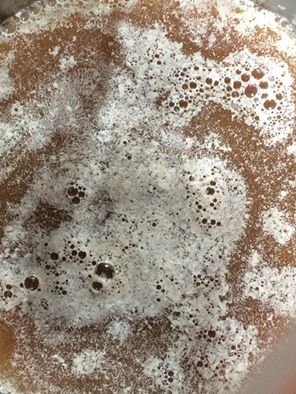 |
Pellicle or yeast fermentation activity, not mold.
|
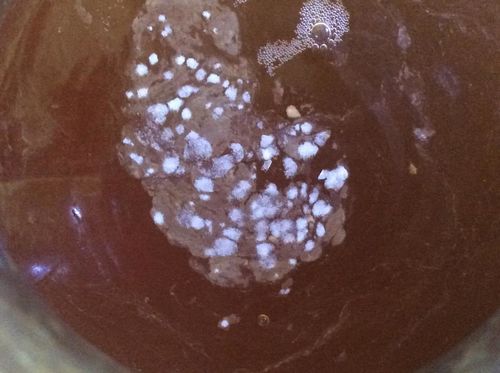 |
Undetermined, but the brewer shook the carboy and the mass went away, so probably not mold.
|
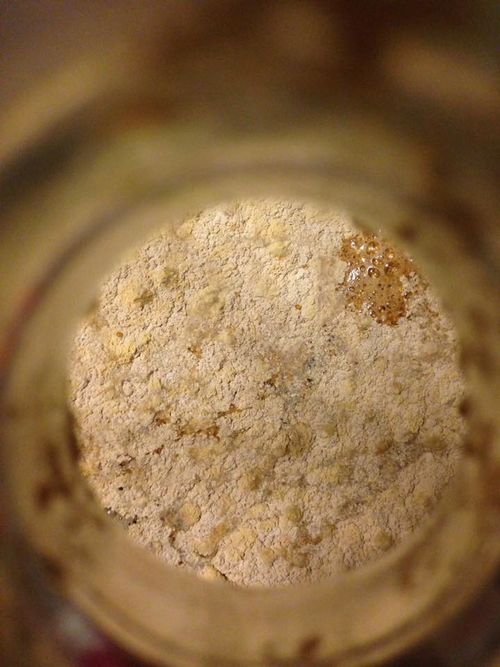 |
Undetermined; the small green area in the middle of the pellicle might be mold.
|
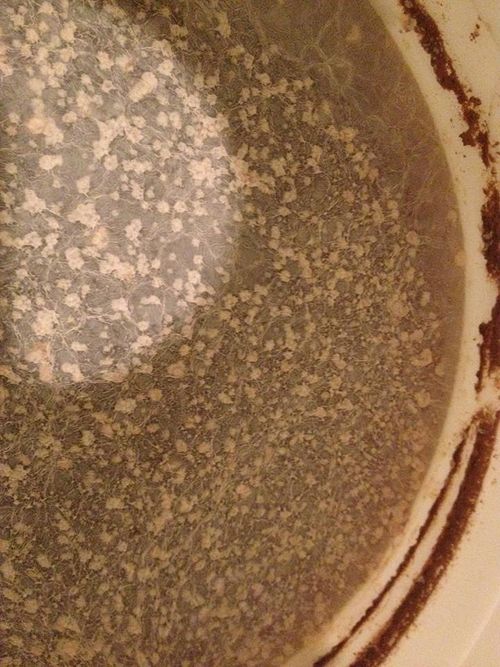 |
Occurred in a clean dubbel after adding prunes; pellicle, not mold.
|
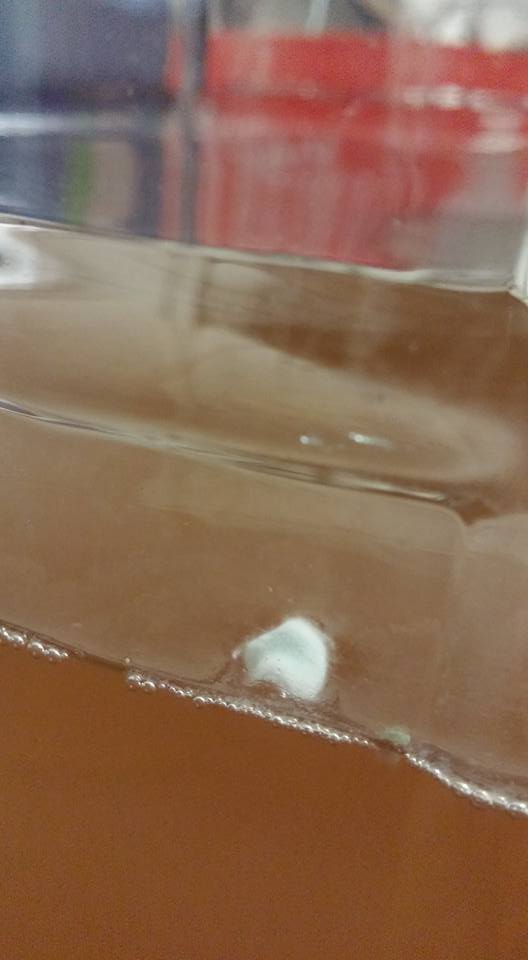 |
Mold growth during kettle souring (Lactobacillus was the only thing added to the wort).
|
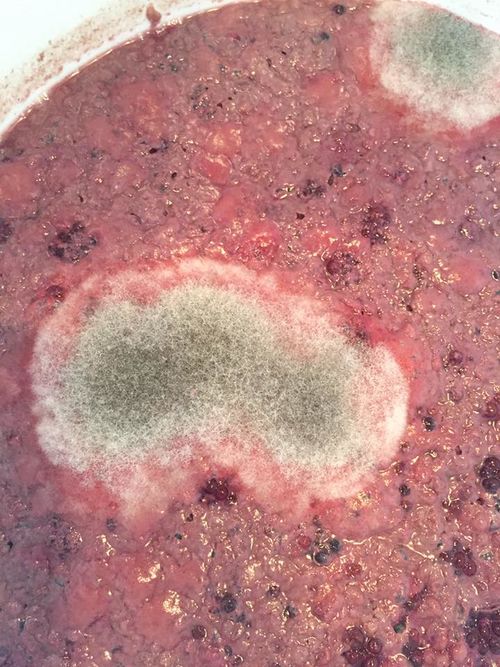 |
Mold growth on top of blackberries.
|
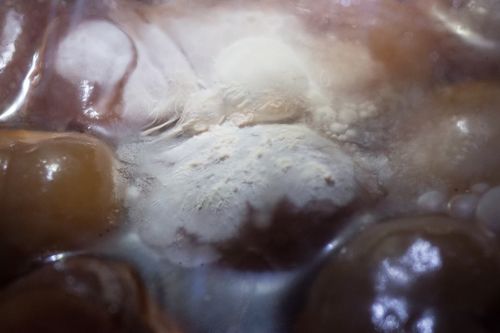 |
Small amount of pellicle, not mold.
|
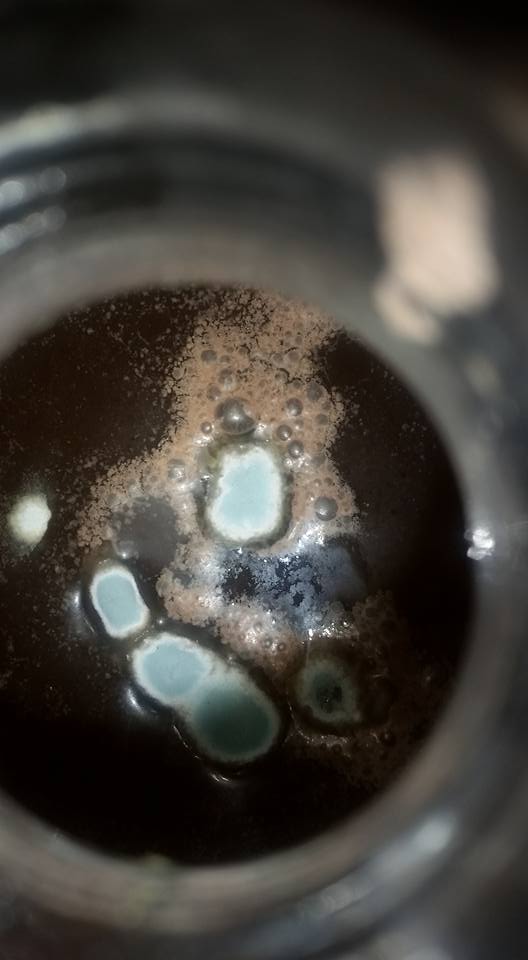 |
Green and fuzzy mold.
|
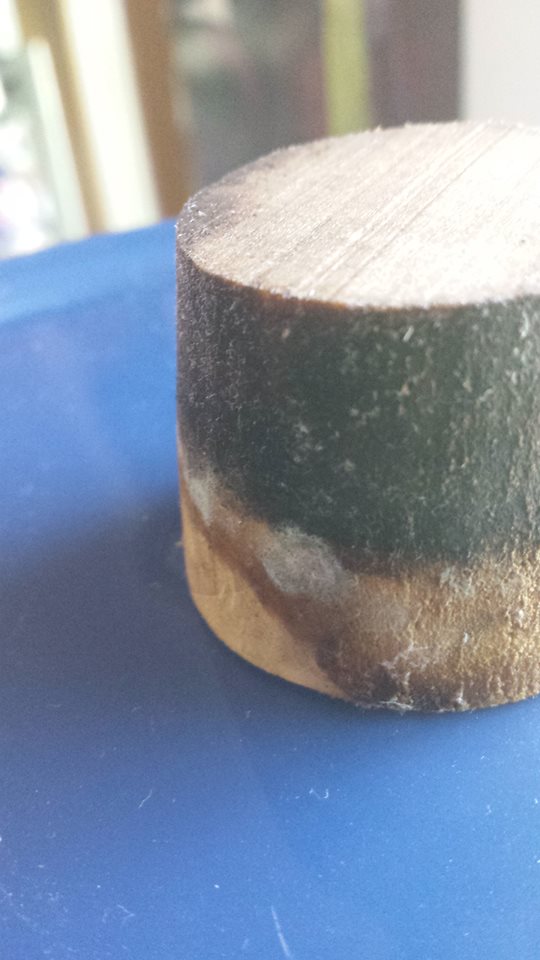 |
Mold growth on an oak barrel bung. Beer is ok if the mold is scrubbed and removed; recommended to use rubber or silicon for the bung instead.
|
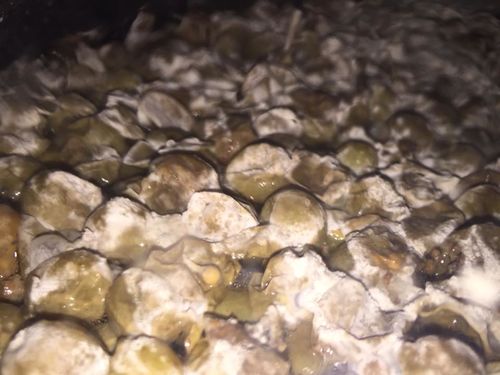 |
Pellicle on top of green grapes, not mold.
|
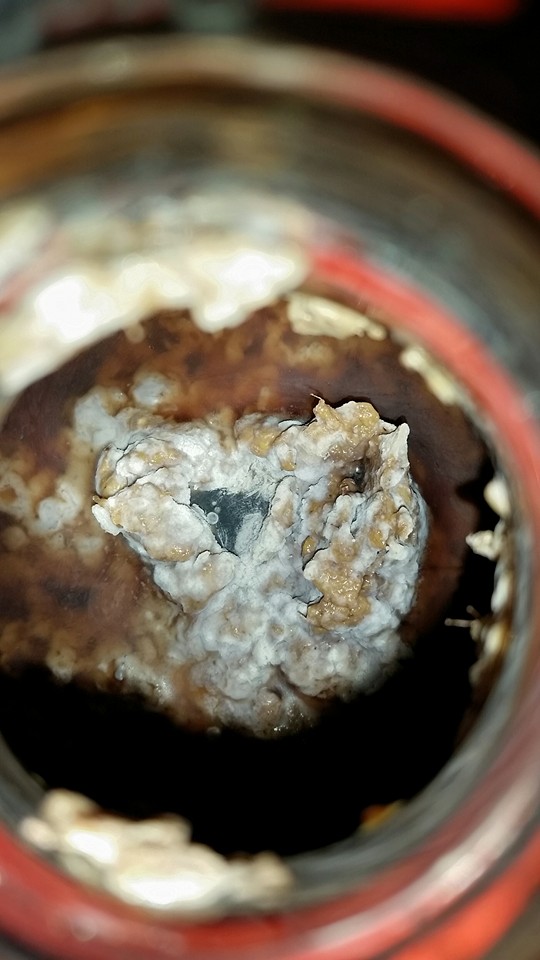 |
Mold growth on fruit that is floating above the surface of the beer.
|
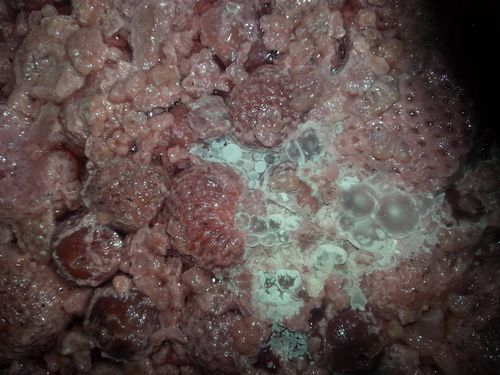 |
Partial pellicle on a kettle sour; probably a wild yeast contamination from the added fruits. Not mold.
|
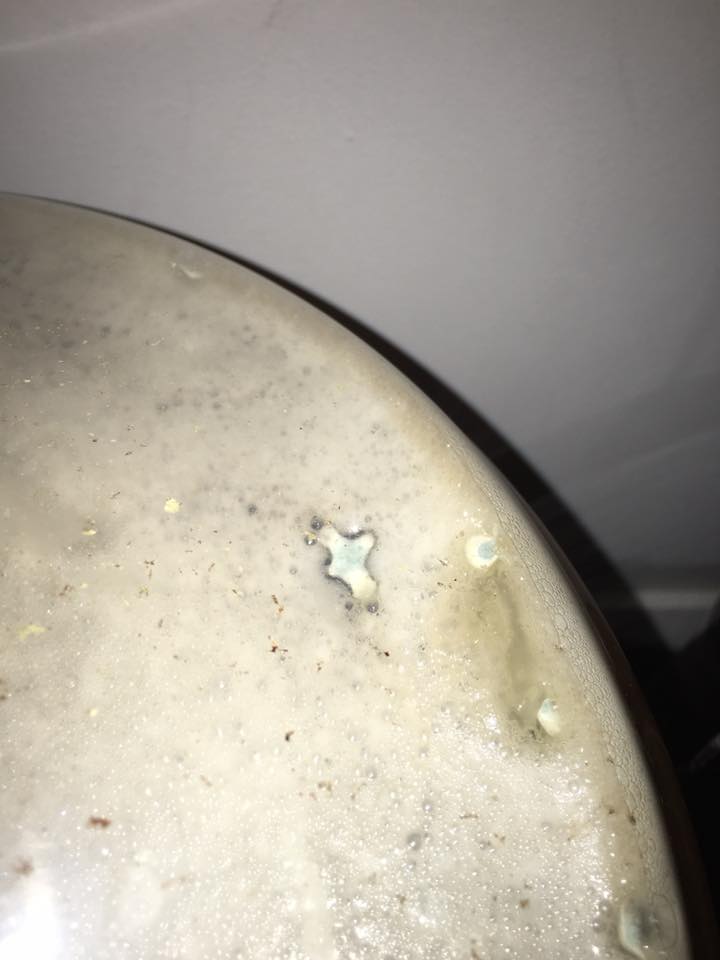 |
Mold growth from under-pitching with only one bottle of commercial beer dregs.
|
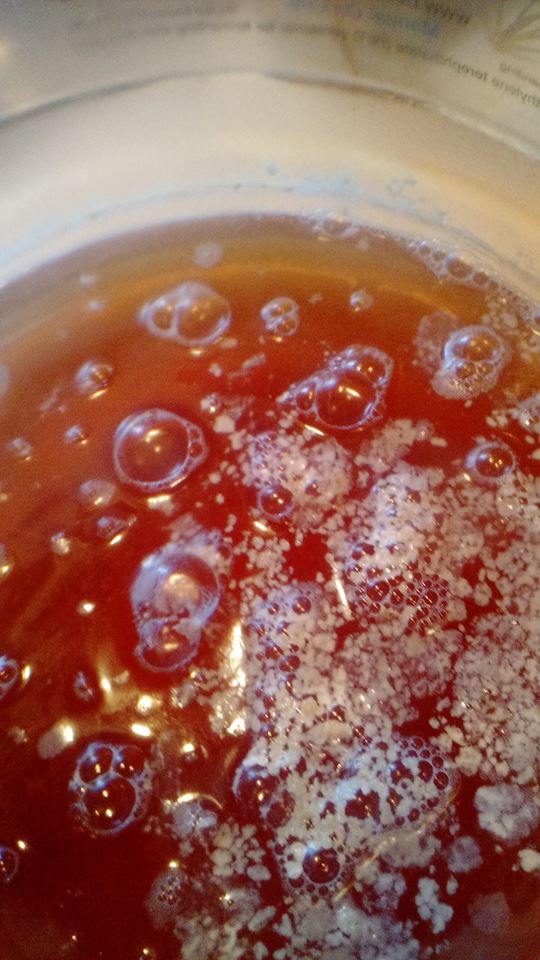 |
Brettanomyces activity, not mold.
|
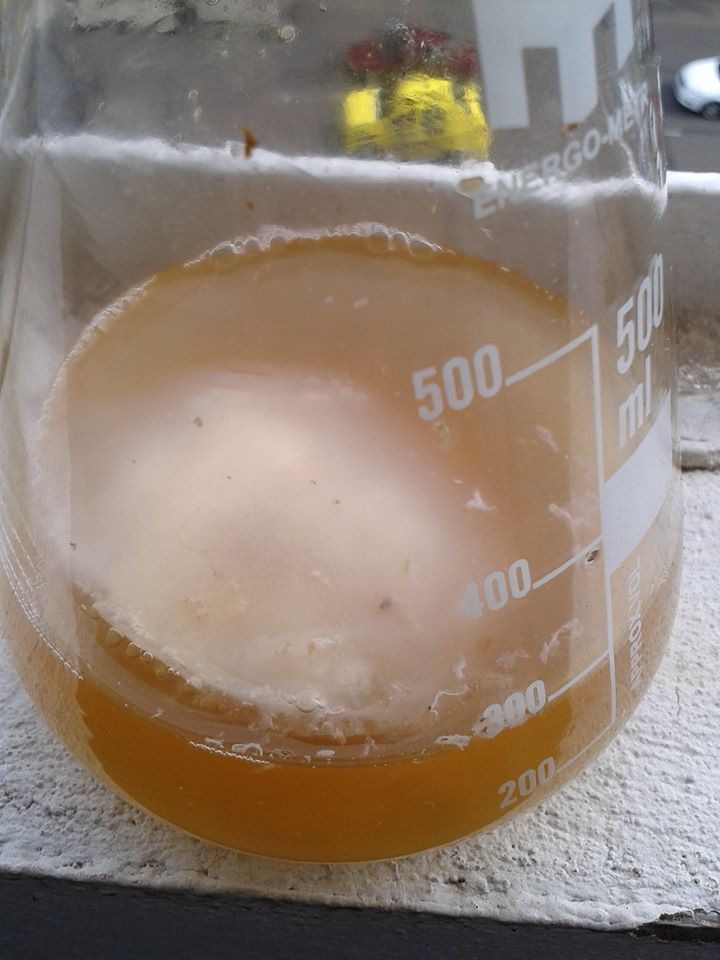 |
Probably not mold, but growth from an unidentified and potentially unwanted microorganism.
|
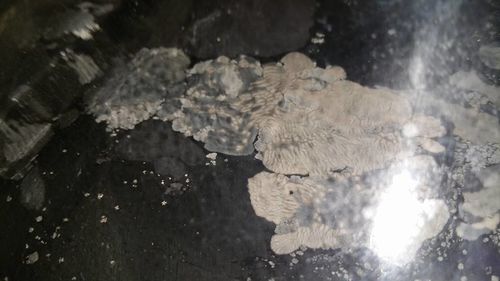 |
Partial pellicle, not mold.
|
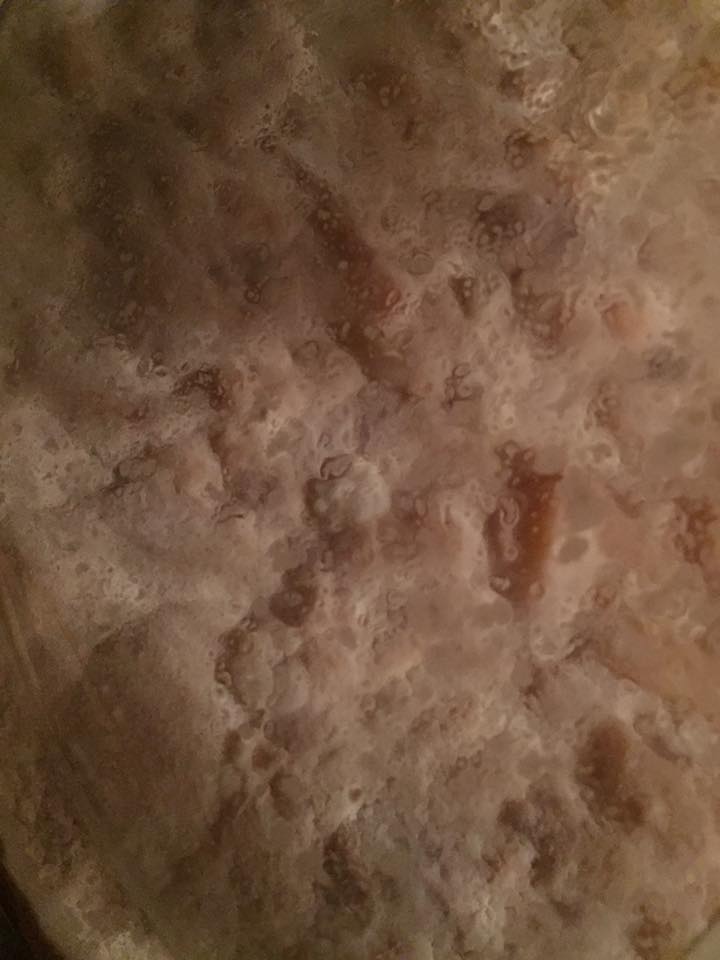 |
Pellicle, not mold.
|
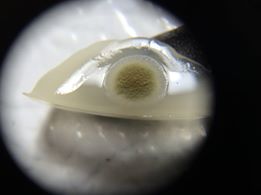 |
Image of mold through a hand lens; photo taken by an iPhone by Mark Trent.
|
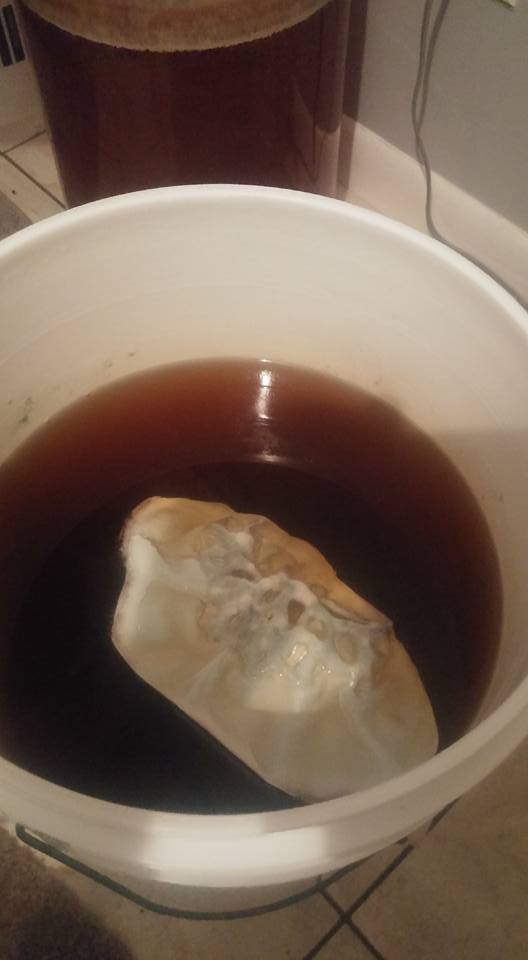 |
Identified in a lab to be Penicillium (considered a mold).
|
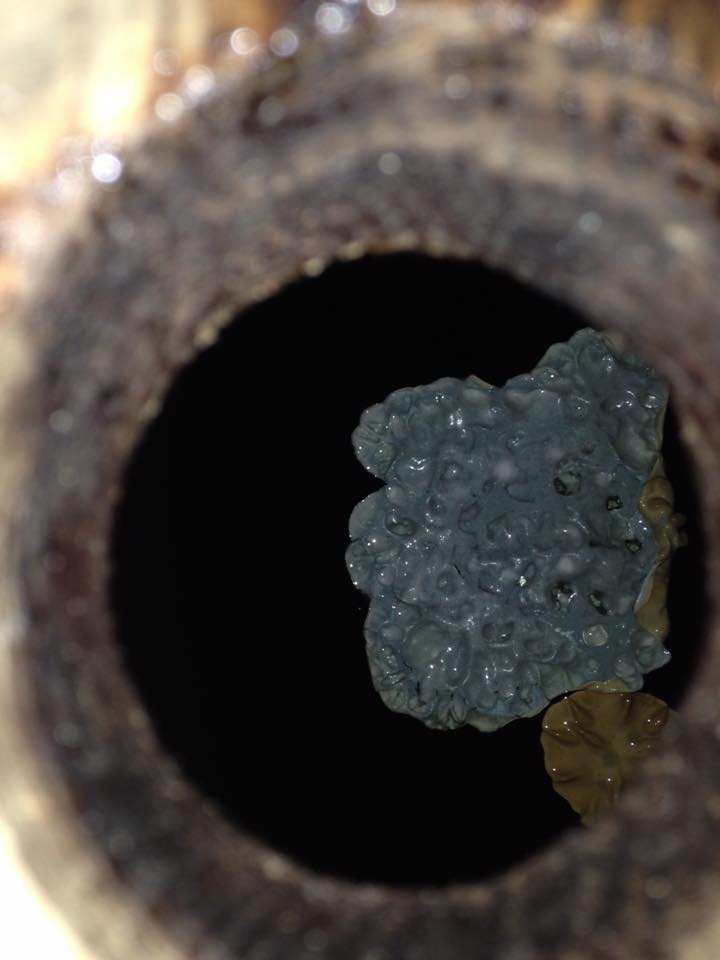 |
Mold in a barrel that made the beer taste like soy sauce; potentially Aspergillus (some can be carcinogenic).
|
See Also
Additional Articles on MTF Wiki
External Resources
References